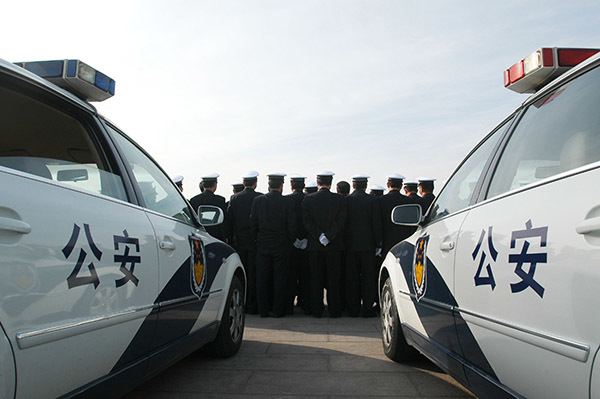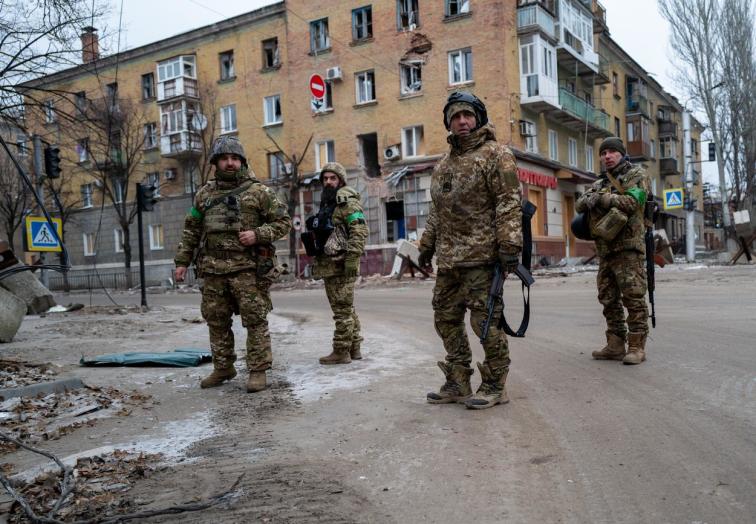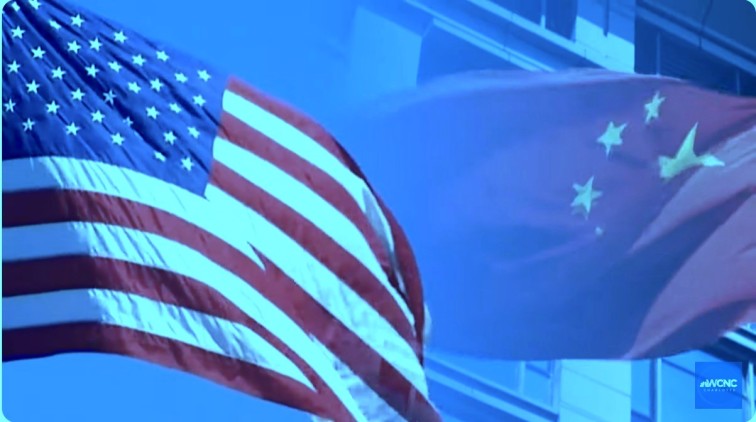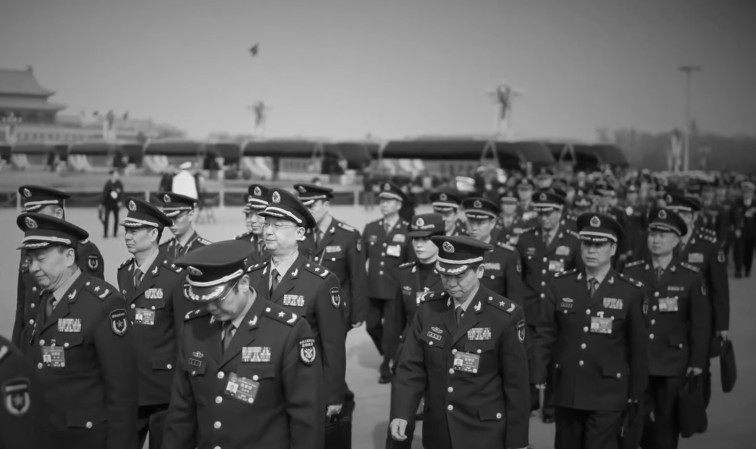Illustration: CCP Police Vehicle (China Photos/Getty Images)
[People News] Former Wuhan Mayor Zhou Xianwang was placed under investigation on July 8. Official reports cite “serious violations of discipline and law.” Analysts believe the international community has never stopped its investigation and accountability efforts regarding the origin of COVID-19, and that higher-level authorities now need a scapegoat to deflect blame. Zhou Xianwang, who likely possesses sensitive information about top-level pandemic decision-making, may have been detained to silence him.
In early 2020, the COVID-19 outbreak first erupted and spread from Wuhan. As mayor at the time, Zhou Xianwang was accused of concealing information. In a press conference, he stated: “As a local government, I can only disclose information once I receive authorisation.” This comment was widely interpreted as shifting the blame to the central government.
On the eve of the one-year anniversary of Wuhan’s lockdown in 2021, the Wuhan People’s Congress announced its acceptance of Zhou’s resignation. He later held a few lower-profile positions, including Vice Chairman of the Hubei Provincial Political Consultative Conference, until retiring in January 2023 at age 60.
Independent political commentator and former media professional Cai Shenkun analysed on his YouTube channel that Zhou’s initial treatment appeared to be a soft landing, showing that Beijing was initially lenient. During the outbreak, Zhou endured significant pressure.
Cai notes that Zhou’s downfall now brings early-pandemic accountability back into the spotlight. His investigation cannot be separated from the unique context of the early COVID-19 outbreak and the political logic behind scapegoating. The question of who bears responsibility for the initial cover-up remains.
Epidemiological research later revealed that the earliest known case dates back to December 2019.
On December 31, 2019, Wuhan’s Health Commission reported 27 cases, including 7 severe cases. It claimed there was no clear evidence of human-to-human transmission and no infection among healthcare workers.
As late as January 11, 2020, the commission repeated that there was no evidence of infection among medical staff or clear human-to-human transmission.
On January 20, 2020, during a press conference, renowned epidemiologist Zhong Nanshan confirmed that the virus had infected 14 healthcare workers through patient care.
On January 21, the Wuhan Health Commission admitted that 15 medical personnel were confirmed to have COVID-19, with one additional suspected case.
On January 23, at 10 a.m., Wuhan officially went into lockdown.
Cai Shenkun points out that Zhou’s interview with CCTV exposed the tension between local and central authorities over information disclosure, highlighting that local officials had limited authority. Zhou essentially pointed the finger at Beijing, a bold and risky move in China’s strictly hierarchical political system, where criticising the central government is taboo.
Cai argues that Zhou’s comments reflect a broader truth: central authorities controlled the initial pandemic response.
On January 25, 2020 — the first day of the Lunar New Year — Xi Jinping chaired a Politburo Standing Committee meeting and issued important instructions on epidemic control.
Cai explains that China’s virus prevention strategy was “personally directed and deployed by Xi Jinping.” This meant that local officials, including provincial party secretaries, could only act publicly after receiving central authorisation. In this light, Hubei and Wuhan officials were merely executing Beijing’s policies, making them convenient scapegoats.
Earlier this year, in February, Jiang Chaoliang, former Party Secretary of Hubei and member of the 14th National People’s Congress Standing Committee, was also taken down. Jiang had served as Hubei Party Secretary from October 2016 to February 2020.
According to Cai Shenkun, Jiang’s fall stemmed from disclosing sensitive information about how central authorities defined and managed the pandemic, which compromised his chances for a soft landing.
Cai argues that because the international community continues to investigate the virus’s origins, anyone pointing responsibility at central authorities — particularly Xi Jinping — faces inevitable punishment. The downfall of both Jiang and Zhou is not simply an anti-corruption effort. Given their backgrounds, any corruption issues would have been easy to uncover earlier.
So why is Zhou being targeted now? Cai outlines several reasons:
-
To Shield the Central Leadership: Zhou and Jiang serve as a firewall to protect top leaders by taking the fall for early pandemic missteps.
-
Internal Power Struggles: Their downfall may be part of ongoing factional infighting within the CCP.
-
Diplomatic Pressure: With international scrutiny still intense regarding Wuhan’s role in the outbreak, punishing Zhou and Jiang could help alleviate external pressure.
Cai also speculates that Zhou may have had access to highly confidential information or was involved in central-level decision-making during the pandemic. This may have made him a silencing target to prevent further leaks.
From what’s been publicly disclosed so far, both the central government and local Wuhan authorities failed to inform the public in time about the outbreak.
Hong Kong's South China Morning Post previously reported, citing government data, that the first confirmed COVID-19 case dates back to November 17, 2019. By the end of 2019, authorities had already confirmed at least 266 cases.
In an interview with foreign media, a Wuhan resident remarked: “The government should have locked down the city back in November when they discovered the pneumonia cases — or at least in December. Even early January would have been better.” He added, “More than two months passed without action — where exactly did things go wrong?”
From January 23 to April 7, 2020, Wuhan remained under lockdown. The fear, anger, sorrow, helplessness, despair, and regret from that time remain deeply etched in memory. Even as time passes, the scars persist — and for those who endured the pain, the question still lingers: “Where exactly did things go wrong?” △
(First published by People News)











News magazine bootstrap themes!
I like this themes, fast loading and look profesional
Thank you Carlos!
You're welcome!
Please support me with give positive rating!
Yes Sure!